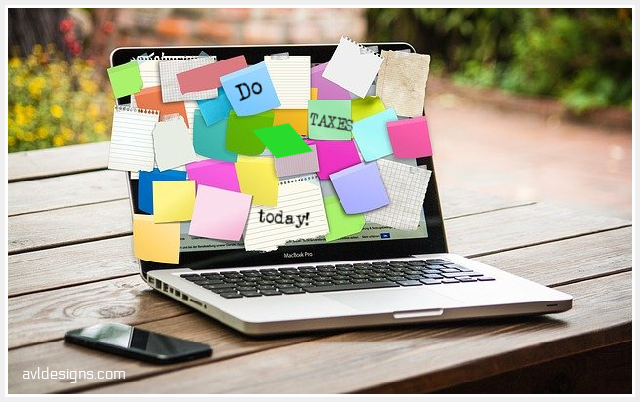So, let’s talk about audio and taxes. It doesn’t seem like they go together, does it? Hang in there and you will soon see what we mean.

.
..
Our team specs a variety of audio consoles used in theaters, high schools, and colleges. Without dispute, the single biggest mistake we come across, after these consoles have been in place for months, is that there still is no saved content.
No Content? That is a problem.
We find, over and over again, there are no templates being used. There are no libraries saved . (If you are drawing a blank on what those are we will explain.) This scenario is all too familiar. Your typical digital console has an input channel and there are all sorts of things you can do with it. You can turn gates on and off. You can turn compressors on and off. You can play with EQ’s. Yes, there are all kinds of things you can do with it. And that is the rub. What should you be doing with it?
Taxes
So, let’s get back to this “taxes” thing. When you think about your console, you have a lot of different things you do with it in a year.
You do theatrical productions.
You do lectures.
You do concerts.
You host lectures.
And, with every undertaking, you have two choices. You can save the settings to start your next performance out right, or you can start from scratch again and again and again.
Save The File. Do It Now.
Now, here is the income tax analogy. Every year you have to calculate and pay your taxes, or the government will come after you. There are a number of online platforms you can use that will do the work for you. Just go to their app, type in all your stuff, it then tells you that you owe a million dollars so that you can simply write a check and all is well. Or go to jail.

Or, there is another choice. If you know how to use Excel, you can build a complete tax calculating program yourself on a spreadsheet.
That option is likely to take a painfully long time but you could do it. You would just have to take all the formulas and all the required information and build your own tax filing program. So, would you want to go through that tedious process from scratch year after year? Is that the best use of your time?
Should You Start From Scratch EVERY Time????
Well, just as it is smarter to let an expert create a tax filing program for you, the console designers have built in ways to create and save settings so that the technician does not have to construct it over and over again.
You can save a show to the hard drive of the console and bring it up to be tweaked and reused again and again. A template can be made to use for the next show, with custom adjustments made for that particular event, and saved for use again and again. Imagine the time it saves!
With little effort, a new version of the event can be fashioned, instead of starting from “square one.” When it comes to consoles in high school and college auditoriums, this is virtually what we see happening. The audio engineer creates a show that works well and never saves that content to the library or scene libraries. He also fails to make a template from the start when it is time to design the next show. Nothing is saved. Absolutely, nothing!
This is not unusual. It is what we see people doing in all sorts of venues.
What They Should Do.
Every venue has various microphones, all of which need specific EQ and settings to use on the sound system in that particular room. For this discussion, let’s talk headsets for theater.
Pick a channel, get the gain set, and EQ the mic to taste and to avoid feedback. Add compressors, gates etc.….. to get the sound and dynamics you want on that mic.
Once you get a channel set up and sounding good, save it in a library file.
Set the file save so you are saving the gate, EQ, the compressor and all of these features to that particular channel library. Now, if you had a dozen of these headsets and were going to be doing a theater production with them, you could go back and populate a bunch of channels by just pasting the library channel in. Every channel would then start out sounding exactly like the one you saved.
Now, that may not seem like a big deal, when you think about bringing a channel up from scratch. It’s not as huge a deal in a studio environment but in a live environment, where you’ve got gain before feedback and room acoustics to deal with, it is. It is important to be sure any channel you make live is safe and sounding at least OK (i.e. neutral.)
Then you ( or someone less skilled than you) want to create a show and be sure that when you start out with each actor in your tech rehearsal, you’re not creating feedback and having problems start out with by using a preset for the headset.
There are some other things you have to think about. Make sure your belt pack gain structure is the same. It’s the same type of headset, all of that stuff, but you then can take a dozen people, throw them on stage at a tech rehearsal, and you will be able to turn all of their mics on and off without any potential for sudden feedback or gross errors.
And then you can work on tweaking their individual voice sounds.
So that’s the real purpose of a digital console is to take the skill set of somebody else and use it to bring up what you want to work on.
So let’s talk about some of the options you have for these kinds of things.
So what we’re going to do is switch from a headset to an SM 58, which is set up with no EQ it’s just flat at a 6” working distance. You can also save one with EQ for a 12” working distance. You can also save it for “lips on mic” with appropriate EQ and gain changes for each.
Then set up a chorus with AKG C414’s or whatever mic you like, and do the same.
These become starting points for various mic types and uses.
So as you create libraries, when you get ready to do an event, you can say, okay, I need these mics for choir. So I’m going to bring up the, AKG C414, put those into some channels.
And they’ve all been preset to be safe for what you’re trying to do.
So the thing I would recommend, and this is for anybody who has a digital console, is you need to find a way to rehearse scenarios with live sources, create presets for channel libraries, whole console templates, etc…..
Define whatever types of events you may do repeatedly and create these preset scenes and libraries. Get them set up so that when you’re preparing for your next event, it’s not a matter of starting from scratch.
Kind of like doing your taxes, the easy way is to start with a template someone else has made.
Copyright AVL Designs Inc.
